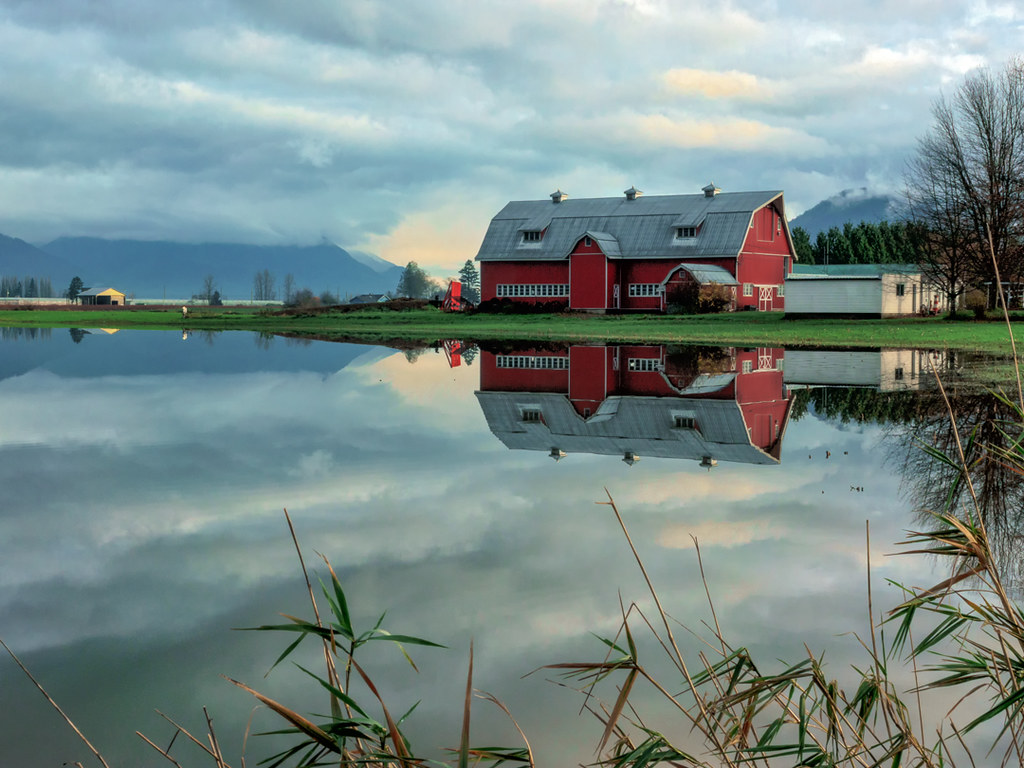Starting November 14, the southern region of British Columbia has been hit by a historic amount of rain, which resulted in major flooding, flooding which devastated the area and put many communities in a state of emergency. Many B.C. residents have been forced to evacuate to more inland communities, and countless homes have been completely destroyed. Of those affected by the immense flooding, many First Nations communities in the region have been hit hard, especially considering some received no prior warning to the disaster, and have received limited assistance since.
Of the 204 First Nations communities in the coastal province, all have been affected by the torrential rains in more ways than one. According to Stewart Phillip, Grand Chief of the Union of B.C. Indian Chiefs (UBCIC), grocery store shelves are empty and gas is running low as the rain has shattered local infrastructure, and halted the provincial food supply chain.
Communities of the Nooaitch First Nation, near the city of Merritt, and Chawathil First Nation have been entirely isolated and left without internet, power, or any connection to the outside world. Many families who are residents of these communities have been separated and unable to contact each other. While the Canadian Armed Forces are working to provide food and supplies to these isolated communities, Chief Rhoda Peters of the Chawathil First Nation told CTV News that she has never seen anything like this in her 70 years of living in the community In the city of Merritt, with a population of 7,000, people were only ordered to evacuate after the flooding caused the failure of the municipal wastewater plant. Coldwater Indian Band Chief Lee Spahan claims that they received no call or warning in light of him and other council members fleeing their offices in downtown Merritt due to the flooding.
These natural disasters are nothing new in the province. Many British Columbians, such as Stewart Phillip, believe that this flooding is another of the many side effects of human-induced climate change. In an interview with National News last Friday, Phillip stated, “[it’s] the cumulative impacts of the industrialized exploitation of the land and waters over the last 100 to 150 years in British Columbia, […] The land is speaking to us, and we need to listen.” Other Indigenous community leaders, such as Terry Teegee, regional chief for the Assembly of First Nations in B.C., agreed human behavior has worsened the situation in British Columbia. Teegee stressed how in the last 5 months, there has been a “Heat Dome”, with the province’s third worst wildfire season on record, and a fall season that has seen unprecedented rainfall by a number of “atmospheric rivers”, which refer to long, high strips of moisture-laden air that cause rainfall of varying intensity along the West Coast.
Many complaints on the part of First Nations communities have been raised towards the lack of initiative of the B.C government. Emergency Management B.C. (EMBC) has been providing information, however, due to the limited access and communication in the area and specifically around the city of Merritt, according to First Nations Chiefs, it is the extent of involvement they have shown. Many community leaders have been highly dissatisfied with the efforts made to mediate this natural disaster. As stated by Robert Phillips, First Nations Leadership Council Member, “B.C. dropped the ball by not contacting Indigenous communities.” There has also been harsh criticism towards the B.C. government as they failed to utilize their Alert Ready system, a straight-to-your-cell phone emergency communication system that has been available since 2018.
In response to these criticisms, an EMBC spokesperson told CBC that “the agency connects with local and Indigenous governments, and provides important information about weather and flood warnings” and that EMBC is “also working with First Nations Emergency Operations Centres and the First Nations Emergency Management Society (FNESS) to respond to unmet needs related to emergency response and recovery efforts.” The B.C government has further implemented the Disaster Financial Assistance (DFA) to eligible British Columbians who have been affected by the flooding and landslides from November 14 to 16. This assistance includes all electoral areas, municipalities, and Indigenous communities in Vancouver Island and the province’s southwest, central and southeast areas. However, as the province awaits at least another week of rain, it is clear that British Columbians are not finished fighting this climate disaster.
Photo credits: “Reflection in Flooded Field” by Warren Schmidt, published on November 20, 2021, licensed under
Creative Commons. No changes were made.

